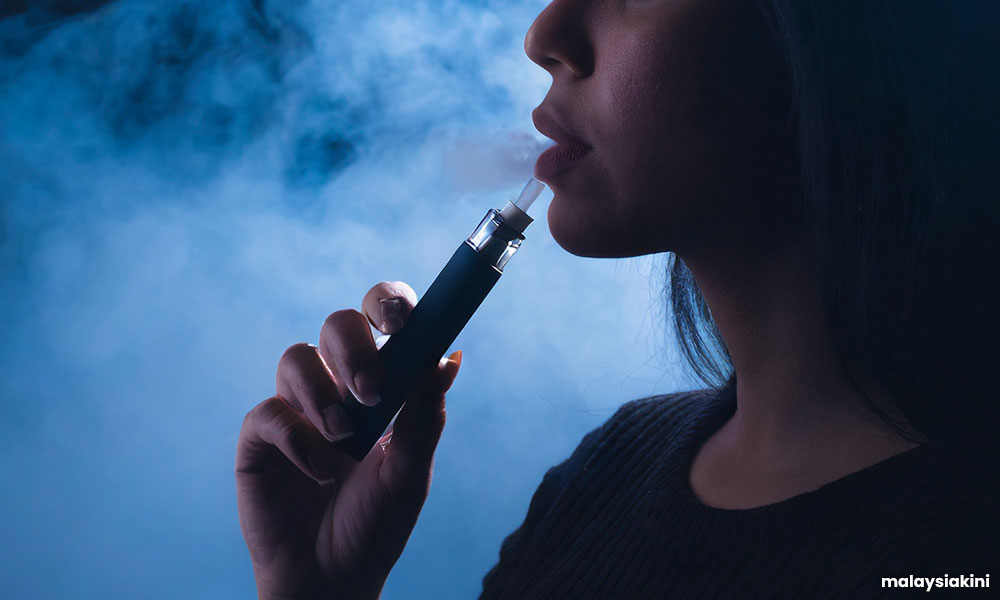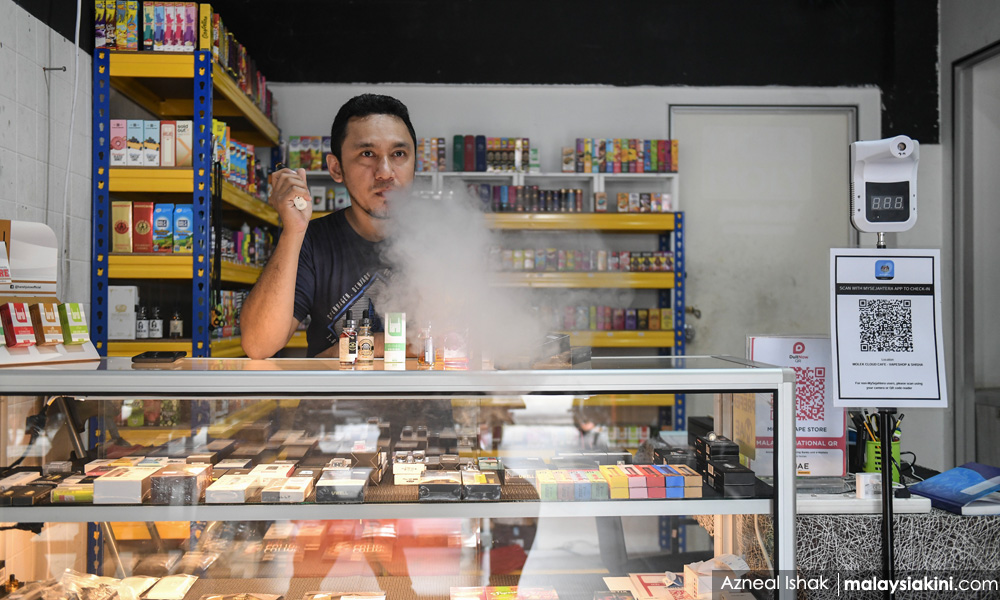MP SPEAKS | As a concerned MP, I strongly assert that the use of electronic cigarettes or vapes poses a serious threat to the health of Malaysians, especially the younger generation.
Recent data shows an alarming increase in vape usage among teenagers. In 2022, 14.9 percent of youths aged 13–17 in the country were reported to be vaping, up from just 9.8 percent in 2017.
This sharp rise not only reflects the spread of nicotine addiction among youths but also carries serious health implications.
Therefore, I urge the government to take firm action by fully banning the sale and distribution of vapes to safeguard the well-being of future generations.
Medical research has clearly proven that vaping is harmful to the body. The nicotine in vape liquids is highly addictive, particularly for teenagers, and can disrupt brain development and cognitive functions.
Researchers have found that nicotine can alter brain chemistry, affect memory and concentration, and increase the risk of anxiety, depression, and addiction to other substances.

Malaysia has already witnessed serious incidents involving vaping, including seizures, breathing difficulties, and even deaths linked to excessive vape use or contaminated vape liquids.
The Health Ministry has confirmed that e-cigarettes or vapes are not a safe alternative to quitting smoking and have adverse effects on health.
Latest statistics related to vape-induced illnesses reinforce this concern. As of June 2023, the ministry recorded 17 cases of vaping-associated lung injury (evali) nationwide.
Death risk
Tragically, Malaysia also reported its first vape-related death: a 16-year-old girl who had been vaping for three years died on June 5, 2023 from acute heart failure in a case classified as evali.
In another incident, a two-year-old child suffered nicotine poisoning after ingesting vape liquid, leading to serious and prolonged neurological complications.
The rising number of such cases demonstrates the critical situation posed by vape usage in our society.
Scientific findings further support this call for a ban. Medical experts have confirmed that the chemicals in heated vape liquids can damage lung tissue, triggering inflammation of the lung lining and raising the risk of lung injury.
International studies have also found that e-cigarette use increases the long-term risk of respiratory diseases.
For example, a recent cohort study in the United States reported that the risk of chronic obstructive pulmonary disease (COPD) is more than twice as high among vape users compared to those who have never smoked or vaped.
Even without nicotine, flavouring agents in vape products have been shown in lab and animal studies to pose risks to the heart and lungs.
The high nicotine content also causes a sharp increase in heart rate and blood pressure, indicating negative effects on the cardiovascular system.
Clearly, vaping not only leads to addiction but also raises the risk of chronic illnesses and long-term health complications.
High cost
This vaping phenomenon also significantly burdens the public healthcare system. The cost of treating vape-related illnesses is extremely high and will strain taxpayers.
The Health Ministry estimates that the treatment cost for a single evali patient can reach RM150,000. Without effective control measures, vape-related healthcare spending is projected to rise to RM369 million per year by 2030.
This figure nearly matches the projected vape tax revenue of around RM500 million annually, demonstrating that the economic benefits of the vape industry are far outweighed by the health costs borne by the government.
The public healthcare sector risks losing hundreds of millions of ringgit to treat vape-related complications, funds that could otherwise be used for more urgent health needs.
Concerns over the vape threat are also echoed by state governments, with Johor, Kedah, and Terengganu taking bold steps by not renewing licences for vape retailers, effectively banning vape sales in those states.

These decisive actions reflect the commitment of those states to protect their citizens, especially the youth, from the dangers of vaping.
However, such efforts need to be expanded nationally to ensure comprehensive public health protection, rather than relying solely on state-by-state measures.
Tighten laws
At the federal level, existing regulatory measures are still weak. Last year, the government removed nicotine-containing vape liquids from the Poisons Act 1952, allowing the unrestricted sale of nicotine vape products.
This decision led to a rapid expansion of the vape market, making it increasingly difficult to control, particularly among youth.
Although Parliament recently passed the Control of Smoking Products for Public Health Bill 2023, the crucial Generational End Game (GEG) clause, which aimed to ban the sale of nicotine products to anyone born after 2007 was unfortunately dropped.
This was a major missed opportunity to protect the younger generation from addiction. Without such critical provisions and comprehensive vape regulation, efforts to curb nicotine addiction among youth will become even more challenging.
A complete nationwide ban on the sale and distribution of vapes must be implemented immediately. This bold move is essential to stem the growing vape epidemic, protect the health of our youth, and relieve the burden on our public healthcare system.
The government is urged not to prioritise short-term tax revenue over the long-term well-being of the people. Instead, it should prioritise the future of our younger generation by enforcing a comprehensive ban on vape, ensuring a healthier, vape-free Malaysia.
R YUNESWARAN is the MP for Segamat.
The views expressed here are those of the author/contributor and do not necessarily represent the views of Malaysiakini.

